Opinion
Igbo New Yam Festival: A dimension of the Biblical first fruit offering feast

By: Okonkwo Chinedu, Ekenyere Gladys & Maduabuchi John-Moses U.
July is an important month for many Igbo people, particularly in South East Nigeria, not because it is the 7th month on the Gregorian calendar, but because it marks the beginning of the Igbo New Year in several communities.
The Igbo New Year precedes the beginning of the Jewish New Year; the difference being probably as a result of differences in location, climatic conditions and the impact of prehistoric migrations of our people. Among the Igbo people of Eastern Nigeria, several communities start the celebration of the New Year with the declaration of the New Yam festivals in July each year.
Ikem, the headquarters of Isi-Uzo Local Government Area, of Enugu State also culturally referred to as “Ikem Asokwa” is an egalitarian town ancestrally related to other communities across Igboland that bear similar cultures and traditional practices, particularly in Abia, Anambra and Ebonyi States. Although there is still a debate as to whether the homeland of all Ikem people is in Abia, Anambra or Enugu State, it is interesting to report that there exists a large autonomous community in Abia State called Ikem-Nvosi, in Isiala Ngwa South LGA which is ancestrally related to Ikem Asokwa of Isi-Uzo LGA in Enugu State. These two communities re-established cultural relations several decades ago. 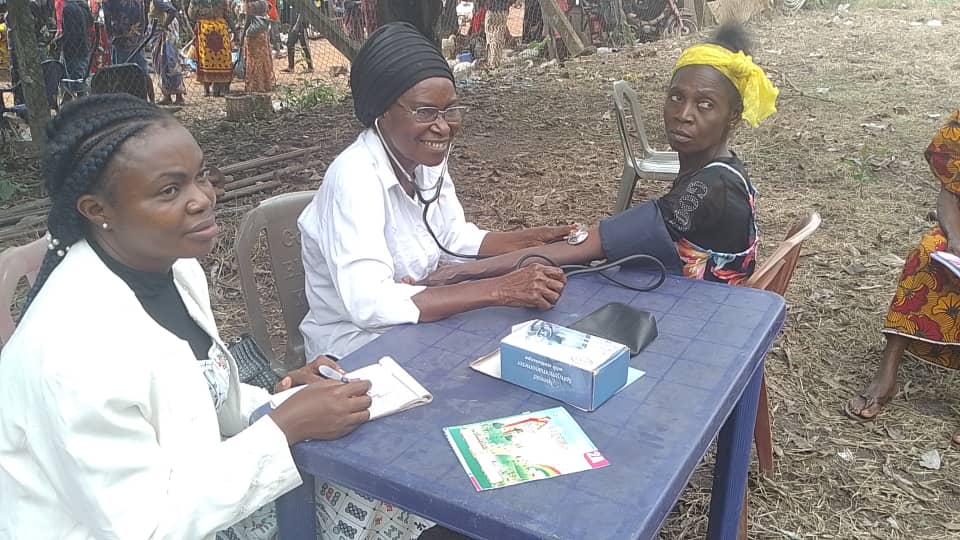
Orurezhi is the traditional New Yam Festival of Ikem people. History and folklore have it that in the very olden days, the chief celebrants of this great feast are the Community Leaders who hold the title of “Edeji”. The Edeji title holders could be literally seen as the “Lords of the Yam.” They were great farmers who cultivated very large quantities of yam and customarily fed multitudes with pounded yam during each Orurezhi Feast. Apart from feeding multitudes which earned them the name Edejis, they also harvested a lot of yam and celebrated the Igbo New Year by cutting and placing large tubers and pieces of yam at different locations in the Community, along their way from the farms to the Market square.
The innovation to celebrate Orurezhi (New Yam Festival) in Ikem Asokwa in an improved way (as the Biblical First Fruit Offering) began 10 years ago. This decision followed widespread consultations with the Igwe-in-Council, then led by Late Igwe Francis O. O. Okwor (Enyioha II) of Ikem. The Community Leaders including the red cap Chiefs, the President General of the Town and the Christian leaders from Ikem Asokwa (collectively referred to as Ikem Ministers’ Forum) all agreed with the view that the the New Yam Festival is the Biblical First Fruit Offering related to the Feast of Harvests/Weeks commanded by God Almighty to be observed by Jews in the Bible.
Majority of the people of Ikem, Isi-Uzo Local Government believe like many other Igbo people that their ancestry is Jewish/Hebraic. It was agreed then that the modern way to celebrate the New Yam Festival in Ikem Asokwa should start with public offering of First Fruits and Thanksgiving Prayers to God Almighty in the market square by the people of Ikem Asokwa.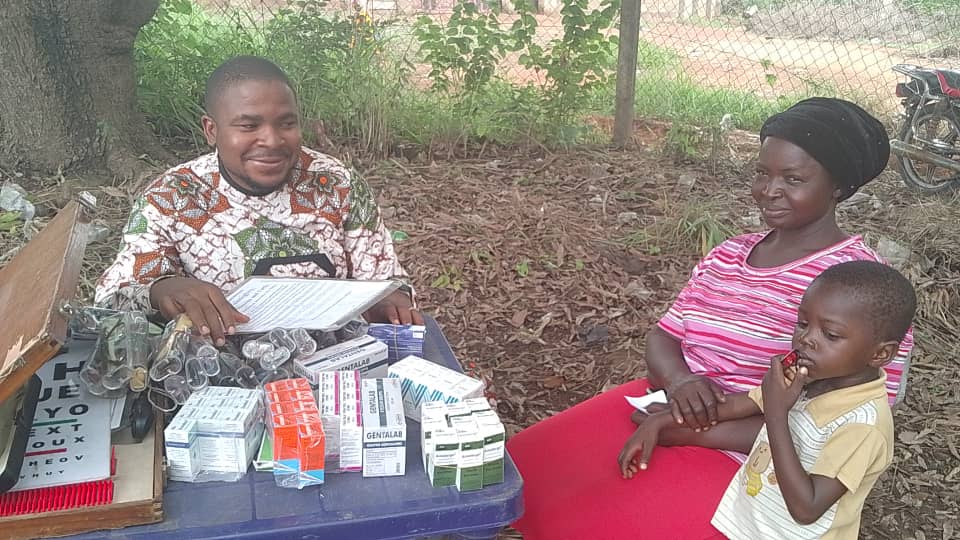
This is a very important act of cultural and religious service done on Saturday, Orie Orurezhi before Sunday, Afor when Christians will as well offer sacrifices of “New Yams” harvested from their farms in various Churches across the Town.
The following Monday, Nkwo is celebrated as the traditional wrestling day.
This is intended to foster unity and development, and to showcase Ikem Asokwa as a formidable Tourism destination in Enugu State, Nigeria. On the very first day of this renewed Orurezhi New Yam Festival, many visitors and tourists throng our town, Medical Missionaries visit and provide free medical services for Ikem people and guests to mark the Festival.
This year’s (2024) event, the 9th in the series; was marked on the July 6th with pomp and pageantry. The participants were excited and hopeful that the 2025 celebration will be more grandiose.
During an interview preceding the festival on 5th July anchored by Mr. Obiora Aneke (a.k.a. Okoro Wawa of Solid FM Radio & Wawa TV), the Chairman of the Isi-Uzo Local Government Traditional Rulers’ Council, HRH. Igwe Engr. Okey Ogbodo (JP), the Igwe of Ikem Uno autonomous community explained what Orurezhi means to the people of Ikem; thus; “Ezhi” means body, while “Ọrụrọ” means fattening or nourishing. It can also be interpreted as transforming or rather cleansing of the body, which also leads to the clearing of the roads and the environments. It is as well the season of plenty after the period of scarcity usually experienced during the planting season. However, once the New Yam is harvested, it marks the end of scarcity for the Community. All the members of the community thus feast together and rejoice in appreciation to the God of the land who has blessed them with good harvests and wealth. The young men are particularly a special class of celebrants during the Orurezhi Festival, as they would compete in wrestling competition on the third day of the feast. In Ikem Asokwa, no responsible young man shows off strength by bearing arms, fighting, killing or harming his neighbor, People show off their strength and superiority through wrestling bouts. This could happen occasionally at any time but whenever Orurezhi is being celebrated it becomes a compulsory activity to mark the end of the festivity.
This year’s First Fruit thanksgiving offering service and prayers which held on 6th July, 2024, Saturday, Orie market day was presided over by H.R.H. Igwe Felix U. Ogbuke, Ohamadike 1 of Ikem (the traditional ruler of Ikem Etiti, who is also the eldest of Igwes in Ikem Asokwa. His message to the entire Ikem indigenes was concise and direct. And that is urging the people to join hands with the Igwes and their cabinets to ensure that Orurezhi is well celebrated in Ikem Asokwa stressing that there is nothing unchristian about the festival. He appreciated the Organizing Committee for the success of this year’s event and the NGOs that participate annually in providing free medical treatments for Ikem people and their visitors. He appealed to all Ikem people at home and in Diaspora to always support the Town in celebrating the New Yam Festival.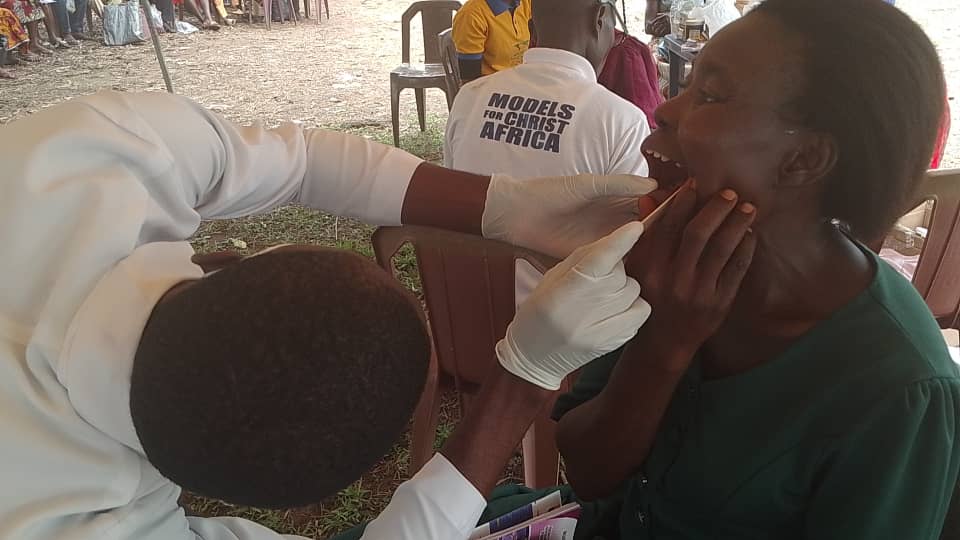
Hon. Chief Engineer. Paul Ugwuagbo, Oforbuike 1 of Ikem Asokwa in his own account explained that before the coming of Europeans to Igboland, farming was the preoccupation of our people and that the celebration of the New Yam festival then was referred to as Ufejioku. However, in the recent past, Ikem generally christened it Orurezhi and chose Saturday Orie every July, for the festival and remodeled it to showcase the biblical values of the feast. He further explained that Orurezhi is a very important and the most outstanding cultural feast that binds all people indigeneous to Ikem together. He equally observed that the yams harvested in July each year belong to a particular species known as “Usekpe Ovune” which Ikem people cultivate in November and December of each year.
In his vote of thanks, the Chairman of the Orurezhi Organizing Committee, Chief Emeka Nnamani (Omemma 1 of Ikem), thanked God and the Medical teams that treat Ikem people free every Orurezhi day. He also reported that the team included General Practitioners, Public Health Physicians, Dental Surgeons and Eye Doctors, Nurses, Dieticians among other volunteers. He stressed that the good people of Ikem remained grateful to the Christian Medical and Dental Association (CMDA) and Models for Christ – Africa (MfCAfrica) Teams for their continued support to our people in the area of healthcare. This year, the MfCAfrica Medical Team was led by Dr. Ifeyinwa Ugwunweze, Consultant Public Health Physician, who in her remarks stated that the outreach was well organized and very successful. She noted that the aim of reaching out to the underserved population heath-wise was achieved. One other volunteer, a Christian Missionary Dental Surgeon, Dr. Daniel Obiora Chukwudimma, on behalf of CMDA summed his experience thus: “I have to really say that Ikem people are lovely to be with, as it was nice meeting them (on Orurezhi day). I must thank the organizers for a well-executed medical outreach.” The Eye Doctor (Optometrist), Dr. Nwakanma also commended Ikem people and observed that there is high rate of cataract, glaucoma and pterygium in the community .
Evang. Emmanuel Ndubusi Agbo, President of Ikem Christian Believers’ Fellowship (ICBF), and a member of the team of the ministers who officiated during the festival stated, “It is very clear that God almighty instituted the festival of first fruit harvest offering and embedded many blessings in it. [Exodus 23:16]. Everyone, especially the Christian Brethren in Ikem are sincerely encouraged to holistically be in the forefront of this our godly tradition. There is no doubt that next year’s Orurezhi will be more grandiosely glorious”.
On the eve of the 2024 Orurezhi Ceremony, the Chairman of the Isi-Uzo Traditional Rulers Council, HRH Igwe Engr. Okey Ogbodo had thanked the Executive Governor of Enugu State, Dr. Peter Mbah, for all he has done for Ikem and Isi-Uzo people and made a passionate appeal to the State Government to beef up security during and after the festival. This was in view of the horrible fatal attacks and killing of innocent citizens in Ikem by suspected killer herdsmen in the past few months.
HRM. Eze Dr. Solomon Nwakwue; Chimereze 1 & Akajiala of Ikem Osokwa-Nvosi, of Isiala Ngwa South LGA in Abia State has been an important stakeholder of Ikem New Yam Festival. This year, as always, he sent a delegation led by two members of his cabinet, Chief Ohazurume 1 of Ikem Asokwa/Osokwa and Mr. Mgbechinyere Sunday, Chairman Village Heads, Ikem Osokwa with Kola Nuts, Alligator Pepper, large quantities of wine and fruits for the First Fruit Offering.
The Ikem Community Health System (Ikem CHS), led by Dr. Maduabuchi John-Moses is a Community-based Organisation that has has been instrumental to the hosting of Medical Outreaches during the festival in Ikem for about two decades now. Ikem CHS was also the first health organization to run a Community-based Social Health Insurance Scheme in collaboration with Healthcare International, a Health Maintenance Organisation.
Opinion
CBN under Cardoso and $6.83 Billion balance of payments surplus in 2024 that signals economic resurgence

By Ibrahim Modibbo
Since his appointment as the Governor of the Central Bank of Nigeria, in October 5, 2023, Olayemi Cardoso has continue to bring on board wide-range of macroeconomic reforms, stronger trade performance, and renewed investor confidence in Nigeria’s economy, that were aimed at putting the country back to its economic footing, as a strong economy that is second to none in Africa.
As part of the ongoing reforms, the Central Bank of Nigeria recently announced a Balance of Payments (BOP) surplus of $6.83 billion for the 2024 financial year, marking a decisive turnaround from deficits of $3.34 billion in 2023 and $3.32 billion in 2022, according to a press statement from Mrs Sidi-Ali, Hakama, the Ag. Director, Corporate Communications of the apex bank.
CBN says “the current and capital account recorded a surplus of $17.22 billion in 2024, underpinned by a goods trade surplus of $13.17 billion. Petroleum imports declined by 23.2% to $14.06 billion, while non-oil imports fell by 12.6% to $25.74 billion. On the export side, gas exports rose by 48.3% to $8.66 billion, and non-oil exports increased by 24.6% to $7.46 billion.”
While “remittance inflows remained resilient, with personal remittances rising by 8.9% to $20.93 billion. International Money Transfer Operator (IMTO) inflows surged by 43.5% to $4.73 billion, up from $3.30 billion in 2023, reflecting stronger engagement from the Nigerian diaspora. Official development assistance also rose by 6.2% to $3.37 billion,” the statement added.
Nigeria recorded a net acquisition of financial assets totalling $12.12 billion. Portfolio Investment inflows more than doubled, increasing by 106.5% to $13.35 billion, while resident foreign currency holdings grew by $5.41 billion, indicating stronger confidence in domestic economic stability. Although foreign direct investment fell by 42.3% to $1.08 billion, the overall financial account posted notable gains.
The country’s external reserves increased by $6.0 billion to $40.19 billion by year-end 2024, bolstering its external buffer.
Notably, net errors and omissions narrowed significantly by 79.5% to negative $5.10 billion in 2024, down from $24.90 billion in 2023, reflecting substantial improvements in data availability and capture. This represents a major advance in data accuracy, transparency, and overall reporting integrity.
The 2024 BOP surplus highlights the effectiveness of Nigeria’s ongoing reform agenda. The liberalisation and unification of the foreign exchange market, a disciplined monetary policy approach to managing inflation and stabilising the naira, and coordinated fiscal and monetary measures have all contributed to enhanced competitiveness and investor sentiment.
“The positive turnaround in our external finances is evidence of effective policy implementation and our unwavering commitment to macroeconomic stability,” said the Governor of the Central Bank of Nigeria. “This surplus marks an important step forward for Nigeria’s economy, benefiting investors, businesses, and everyday Nigerians alike,” the statement further noted.
Other notable indicators to building strong economy by this policy include but not limited to a stronger trade performance, particularly in the current and capital accounts, with a surplus of $17.22 billion in 2024, has contributed to the balance of payments surplus. A goods trade surplus of $13.17 billion that will further strengthens the positive trend. The decline in petroleum and non-oil imports also contributes to a more favorable trade balance.
It will noteworthy to note that the CBN’s reforms have increased investor confidence, leading to higher foreign portfolio investment inflows. Portfolio investment inflows more than doubled in 2024, reaching $13.35 billion. This influx of capital indicates a stronger belief in the stability and growth prospects of the Nigerian economy.
The apex bank’s disciplined monetary policy and FX market reforms on the other hand are aimed at managing inflation and stabilizing the Naira, has contributed to a more stable financial system.
The liberalization and unification of the foreign exchange market have led to greater transparency and reduced distortions in the market.
The implementation of an Electronic Foreign Exchange Matching System (EFEMS) further enhances transparency and efficiency in the FX market.
The reforms, including the unification of the exchange rate, have improved Nigeria’s competitiveness and attracted more foreign investment. Testament to this is the clearing of a $7 billion forex backlog which has also boosted the country’s image with foreign investors.
Also, the significant improvements in data availability and capture have led to a marked reduction in net errors and omissions in the balance of payments data. This enhanced data integrity provides a more accurate picture of the country’s economic performance and builds trust with stakeholders.
In conclusion, the combination of strong trade performance, renewed investor confidence, disciplined monetary policy, and improved data integrity, all facilitated by the CBN’s wide-ranging reforms, are key indicators of Nigeria’s economic resurgence. These developments demonstrate the positive impact of the reforms on the nation’s external finances and overall economic stability.
Dr Moddibo, a public analyst, wrote in from Abuja
Opinion
CBN leads financial dialogue with JP Morgan, NGX, others, in pre-spring meetings Forum

By Dr. Ibrahim Modibbo
In anticipation of the International Monetary Fund (IMF) and World Bank Group (WBG) Spring meetings which commenced on Monday, April 21, 2025, the Central Bank of Nigeria (CBN) partnered with J.P. Morgan, the Nigerian Exchange Group (NGX) and Africa Private Capital Association (AVCA) to host a high-profile global forum at Nasdaq MarketSite in New York on Thursday, April 17, 2025, according to press statement by Dr Ibrahim Moddibo.
The forum, titled “The Nigeria Investment Agenda: Pathways for Growth & Global Partnerships,” convened global investors, diaspora leaders, and senior financial stakeholders to examine Nigeria’s macroeconomic prospects and ongoing reform progress.During his commanding address, Governor Olayemi Cardoso outlined his comprehensive reform strategy encompassing monetary tightening, foreign exchange market transparency, and enhanced financial governance.
He emphasized that these initiatives are establishing the foundation for sustainable macroeconomic stability and heralding a new era of transparency and confidence.Governor Cardoso reaffirmed the CBN’s unwavering commitment to rebuilding credibility through orthodox monetary policy, transparency, and consistency.
“We inherited a crisis of confidence but chose a different path. We’re not turning back,” he stated decisively.In a powerful fireside chat between the Governor and Nobel Prize-winning economist Dr. James Robinson, Reverend Richard L. Pearson Professor at the University of Chicago, Governor Cardoso elaborated on his vision to reestablish the CBN as a credible, trusted institution – rooted in domestic excellence and respected internationally.Mr. Muhammad Sani Abdullahi, Deputy Governor for Economic Policy at the CBN, delivered a macroeconomic update highlighting sharp increases in foreign exchange turnover, emerging signs of disinflation, and strengthening external reserves. “With a market-determined exchange rate and a transparent, rules-based policy framework, confidence is gradually being restored in Nigeria’s economy,” he noted.
Welcoming participants to the forum, Dr. Nkiru Balonwu, Adviser to the CBN Governor on Stakeholder Engagement and Strategic Communication, framed the forum as a key moment in the Bank’s broader engagement strategy. “Today is more than a conversation,” she noted.
It’s about opening the books on the CBN’s transformation story under Governor Cardoso – sharing the facts, interrogating the progress, and looking ahead together at what more can be done to build sustainable partnerships and unlock long-term capital,” she explained.
Another key highlight of the event was the panel discussion entitled “Repricing Nigeria: Assessing the Scope for Sustained Change.” Moderated by Gavin Serkin, Founder of New Markets Media & Intelligence, the panel featured global financial luminaries: Joyce Chang, Chair of Global Research at JPMorgan Chase; Jason Rekate, Global Co-Head of Corporate Banking at Citi; Razia Khan, Chief Economist for Africa & Middle East at Standard Chartered; and Ahmad Zuaiter, Co-Founder & CIO of Jadara Capital Partners. Each panelist provided expert perspectives on Nigeria’s investment landscape, noting renewed international interest driven by improved fundamentals, strengthened governance, and clearer policy direction.
The CBN Board and Monetary Policy Committee were represented by US-based diaspora members Mr. Robert Agbede, Prof. Melvin Ayogu, and Dr. Aloysius Ordu, underscoring the Bank’s global engagement and commitment to leveraging Nigerian talent worldwide. Temi Popoola, Group CEO of NGX, moderated the Q&A session, while Dr. Olubukola Akinniyi Akinwunmi, Director of Banking Supervision at CBN, delivered the closing remarks.The forum focused on substantive discussions and future prospects: engaging critical voices, evaluating progress, and identifying requirements for building lasting partnerships and attracting long-term capital. Central to this endeavor is a clear objective: reestablishing the CBN as a credible, trusted institution respected globally and dedicated to excellence at home.
Dr. Ibrahim Modibbo, a public affairs analyst writes from Abuja.
Opinion
Instagram , WhatsApp troubled by antitrust laws

By Sonny Aragba-Akpore
While we are yet to grapple with the fate of Tik Tok which President Donald Trump had asked its parent company Byte Dance of China to divest from it’s American operations or be banned, Meta Group, owners of Instagram and WhatsApp, is troubled over antitrust concerns.
The U.S. Federal Trade Commission (FTC) has taken the group to court over anti competition issues.
Specifically, the FTC wants Meta to divest from its two biggest companies in an antitrust trial that could redefine the future of social media.
And so Meta’s world is troubled as Mark Zuckerberg’s company could be forced to sell Instagram and WhatsApp if it loses the lawsuit that has just begun in the U.S.
The FTC has accused Zuckerberg’s company of having bought both platforms to eliminate competition and maintain a monopoly on social media.
If the court rules against them, it would be a historic blow to the tech giant.
Zuckerberg acquired Instagram in 2012, and then, two years later,(2014) completed his trio by buying WhatsApp.
Facebook is the third leg of the trio and this easily makes the group the largest tech owner in the world.
Although these acquisitions were approved by the FTC itself at that time ,but now this lawsuit seeks to reverse that approval, arguing that the purchase was not for innovation but to “neutralize” emerging rivals like Instagram which was acquired in 2012 and thus take control of the entire market.
The FTC claims that Meta has used its financial muscle to block competition, buying up emerging apps instead of competing with them, and it has been doing this since 2008! Everything is based on 2012 emails where Zuckerberg had expressed concern about Instagram’s rapid growth compared to Facebook’s performance (which was his only app at the time). In those emails, Zuckerberg admitted it was better to buy than to compete. And so he did, acquiring the app years later.
“On the other hand, he also bought WhatsApp, and of course that reinforces the FTC’s accusation. Meta strengthened its control over the digital system, keeping these apps as separate platforms but under the same power structure” analysts reason.
Meta has not denied the purchases, even though it rejects having acted in an anti-competitive way, calling the case a “weak lawsuit that ignores reality,” since they believe they face strong competition from platforms like TikTok, YouTube or X among many other apps.
During the trial, Zuckerberg claimed he bought Instagram for its camera technology, not because the social network was on the rise, but the 2012 messages don’t seem to support that statement very well.
In the likelihood that FTC wins this case, Meta could be forced to sell Instagram, WhatsApp, or both. This wouldn’t necessarily mean an immediate change for users, but it would shift the balance in the digital market, according to experts.
Digital sociologists think that Meta would make it easier to regulate social networks individually by the FTC.
One of the major implications will be on things like content moderation, privacy, or the use of personal data.
“If it gets split, it would be easier for lawmakers, ensuring proper service to users” digital sociologists admit.
There are however fears of who buys if it gets to that .
For instance If a controversial figure like Elon Musk or an investment fund takes control of Instagram, like what happened with Twitter (now X), it’s possible that many users would leave in large numbers for new alternatives that may emerge, like BlueSky.
“But if it falls into the hands of a discreet company, without major visible changes, it’s likely that most people will keep using it as they always have.”
Although Meta does not reveal exactly how much it earns from each app, it is estimated that Instagram generates around $37 million a year, surpassing Facebook’s revenue according to analysts.
“So of course, Zuckerberg’s eagerness to get out of this case is clear: they can’t afford to lose that income because it would be a catastrophe for Meta” another analyst submits.
The expectations are dicey because the court’s decision will not only affect Meta, but could also open the door to more lawsuits against other big platforms for similar monopoly practices. And at a time when the control of social networks is more questioned than ever, this case could define the future of the digital system in terms of free choice and regulations.
Instagram and WhatsApp which were acquired over a decade ago have become social powerhouses and easily the biggest platforms in that genre.
This looming antitrust trial will be the first big test of President Trump’s Federal Trade Commission’s ability to challenge Big Tech.
The lawsuit was first filed against Meta — then called Facebook — in 2020, during Trump’s first term. It claims the company bought Instagram and WhatsApp to squash competition and establish an illegal monopoly in the social media market.
FTC contends that Meta has maintained a monopoly by pursuing CEO Zuckerberg’s strategy, “expressed in 2008: ‘It is better to buy than compete.’ True to that maxim, Facebook has systematically tracked potential rivals and acquired companies that it viewed as serious competitive threats.”
U.S. antitrust laws are enforced by both the FTC’s Bureau of Competition and the Antitrust Division of the Department of Justice. The agencies consult before opening any investigation. The Antitrust Division handles all criminal antitrust enforcement.
The FTC,s Bureau of Competition enforces the nation’s antitrust laws, which form the foundation of a free market economy.
The antitrust laws promote the interests of consumers; they support unfettered markets and result in lower prices and more choices.
The Federal Trade Commission Act and the Clayton Act, both passed by Congress in 1914, give the Commission authority to enforce the antitrust laws.
These laws prohibit anticompetitive mergers and business practices that seek to prevent hard-driving competition, such as monopolistic conduct, attempts to monopolize, and conspiracies in restraint of trade.
The Bureau of Competition investigates potential law violations and seeks legal remedies in federal court or before the FTC’s administrative law judges. The Bureau also serves as a resource for policy makers on competition issues, and works closely with foreign competition agencies to promote sound and consistent outcomes in the international arena.
WhatsApp (officially WhatsApp Messenger) is an American social media, instant messaging (IM), and voice-over-IP (VoIP) service owned by technology conglomerate Meta. It allows users to send text, voice messages and video messages, make voice and video calls, and share images, documents, user locations, and other content.
WhatsApp’s client application runs on mobile devices, and can be accessed from computers.
The service requires a cellular mobile telephone number to sign up.
In January 2018, WhatsApp released a standalone business app called WhatsApp Business which can communicate with the standard WhatsApp client.
The service was created by WhatsApp Inc. of Mountain View, California, which was acquired by Facebook in February 2014 for approximately US$19.3 billion.
It became the world’s most popular messaging application by 2015,and had more than two billion users worldwide by February 2020,confirmed four years later by 200 million new registrations per month.
By 2016, it had become the primary means of Internet communication in regions including the Americas, the Indian subcontinent, and large parts of Europe and Africa.
Instagram is an American photo and short-form video sharing social networking service owned by Meta Platforms. It allows users to upload media that can be edited with filters, be organized by hashtags, and be associated with a location via geographical tagging.
Posts can be shared publicly or with preapproved followers. Users can browse other users’ content by tags and locations, view trending content, like photos, and follow other users to add their content to a personal feed.
A Meta-operated image-centric social media platform, it is available on iOS, Android, Windows 10, and the web. Users can take photos and edit them using built-in filters and other tools, then share them on other social media platforms like Facebook.
It supports 32 languages including English, Hindi, Spanish, French, Korean, and Japanese.
Instagram was originally distinguished by allowing content to be framed only in a square aspect ratio of 640 pixels to match the display width of the iPhone at the time.
In 2015, this restriction was eased with an increase to 1080 pixels. It also added messaging features, the ability to include multiple images or videos in a single post, and a Stories feature—similar to its main competitor, Snapchat, which allowed users to post their content to a sequential feed, with each post accessible to others for 24 hours.
As of January 2019, Stories were used by 500 million people daily.
Instagram was launched for iOS in October 2010 by Kevin Systrom and Mike Krieger. It rapidly gained popularity, reaching one million registered users in two months, 10 million in a year, and one billion in June 2018.
In April 2012, Facebook acquired the service for approximately US$1 billion in cash and stock. The Android version of Instagram was released in April 2012, followed by a feature-limited desktop interface in November 2012, a Fire OS app in June 2014, and an app for Windows 10 in October 2016.
Although often admired for its success and influence, Instagram has also been criticized for negatively affecting teens’ mental health, its policy and interface changes, its alleged censorship, and illegal and inappropriate content uploaded by users.
-

 News7 hours ago
News7 hours agoJust in: Senator Natasha tenders satirical ‘apology’ to Akpabio
-

 News23 hours ago
News23 hours agoGunmen abduct two senior LG workers, three others
-

 News16 hours ago
News16 hours agoBenue LG chairman gives Fulanis 48hrs to leave all farmlands
-
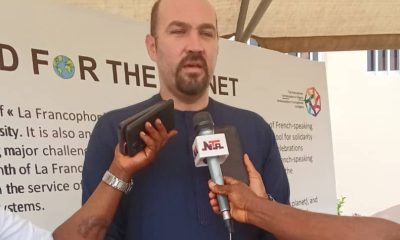
 News22 hours ago
News22 hours agoFrancophone Ambassadors, Nigeria Unite To Fight Against Climate Change
-

 News16 hours ago
News16 hours agoFive suspected kidnappers eliminated by police in Delta
-

 Metro9 hours ago
Metro9 hours ago‘My husband always makes love throughout the night until morning’ – Woman Wants Divorce
-

 News4 hours ago
News4 hours agoUNUSUAL! Without invitation, Police declared me wanted — Daughter of ABC Transport owner
-
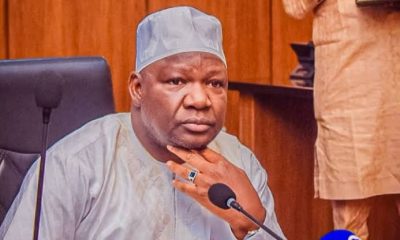
 News18 minutes ago
News18 minutes agoWeeks to 2nd anniversary, Niger deputy gov, plans to resign, move out personal effects




